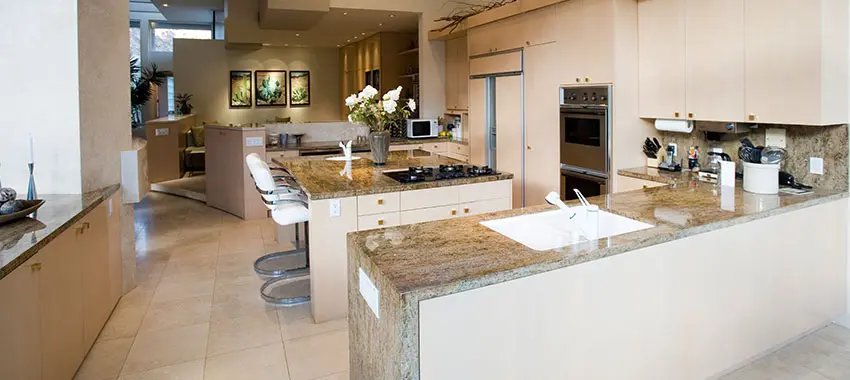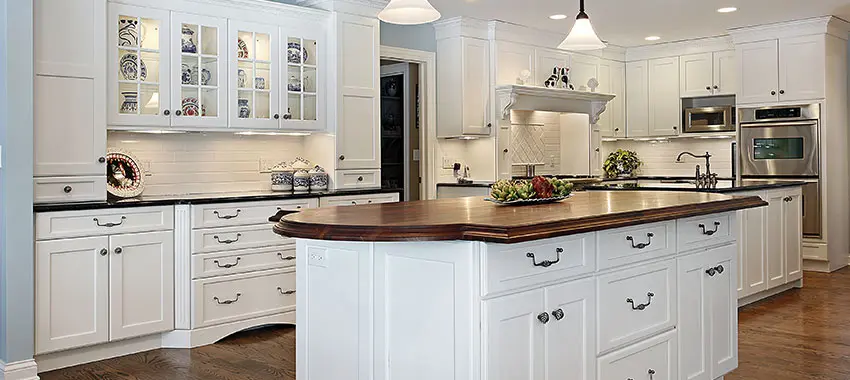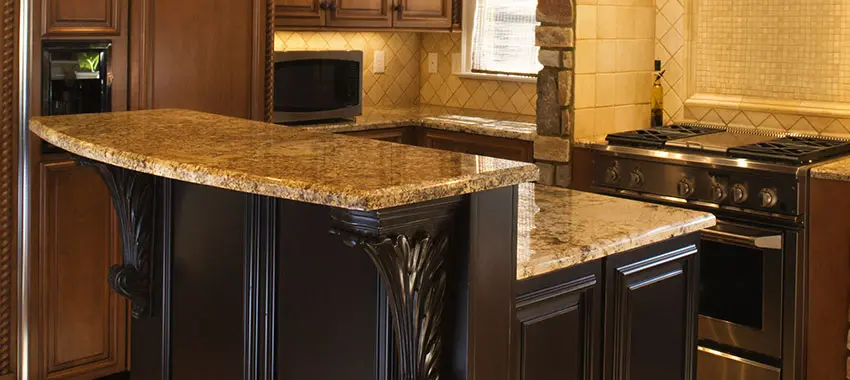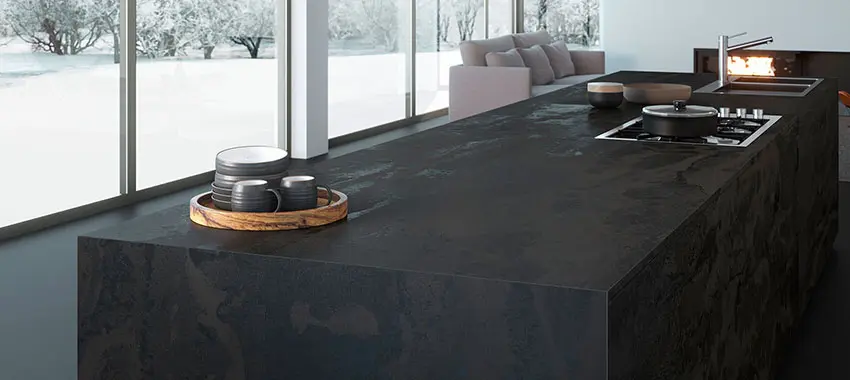Nov
What Are My Kitchen Countertops Options?
Are you thinking about installing kitchen countertops and asking what are my kitchen countertops options? Well, there are plenty of options you can go with, with the common ones being:
Natural stone countertops
From their name, these are countertops obtained from natural stone, and they include: soapstone, marble, slate, and granite countertops.
Granite countertops are one of the most popular, and they are sold primarily through local fabricators, but you will sometimes find them in home improvement stores and kitchen showrooms.
Granite comes in a wide range of colors ranging from variegated browns to vibrant blue. It goes that the rarer the color, the more expensive the stone, so if you are on a budget, you should stay away from the rare colors.
Marble is another popular natural stone countertop that has fewer color patterns than granite. Marble is relatively soft and porous than granite, which makes it more prone to stains.
Despite this, marble is regarded as an almost perfect work surface for activities such as making fresh pasta and baking.
Soapstone and slate aren’t as popular as granite and marble, and they come in far fewer colors than granite. Soapstone is usually dark greenish-black in color, but it’s not uncommon to find lighter green-gray slabs.
On the other hand, slate is extremely dense and comes in five subtle colors such as red, gray, green, black, and purple. You will sometimes find mottled purple and variegated purple slates with visible veins and shades of contrasting colors.
If working with an experienced contractor, soapstone and slate can be fabricated into sinks to match the countertops.
Like the other natural stone countertops, soapstone is porous, and you need to seal it to reduce staining regularly.
Solid surface countertops
Made from dense polyester, acrylic, or a blend of the two, solid surface countertops come in various colors and patterns. They are non-porous, which means they are highly stain and scratch-resistant. It also means that they are highly easy to maintain.
The unique thing about these countertops is they are renewable and repairable. This means that if you scratch or burn the surfaces, you can easily sand them out and fill the gouges.
The countertop seams are fused to create undetectable joints, making the countertops perfect for large or long sections of countertops and oversized island tops.
Concrete
Concrete counters closely resemble natural stone and are popular among homeowners looking to create custom countertops.
Unlike the 80s concrete countertops where the fabricators messily poured the concrete on top of the cabinets, modern fabricators offer pre-cast counters made in the workshop then delivered to your home already fully cured and finished.
The pre-cast concrete counters are 1 ½ inch thick and are available in slabs of up to 10 feet long.
The fabricators can create them in any color, which is achieved by adding pigments to the concrete during mixing.
Once cured, the slabs are honed and sealed to prevent them from staining.
The major problem with concrete is cracking. Fabricators go around this by using wire mesh, metal bars, or fiberglass to strengthen them.
Engineered stone
Also known as quartz composite, engineered stone comprises 90% quartz and 10% acrylic or epoxy binder. The most popular composites under this category are: Silestone, Formica solid surfacing, and Corian Quartz.
You must be wondering what is the difference between the traditional solid surfacing and engineered stone countertops, right? Well, the difference is that engineered stone is much harder and has more depth than the other countertops. It also has clarity and radiance you won’t find in other countertops.
Ceramic tiles
Most homeowners now prefer countertops that are easy to install, maintain, and provide a seamless counter. Due to this, few countertops are covered with porcelain or ceramic tile.
While this is the case, it doesn’t mean that you should rule out ceramic countertops for your project. The tiles make an excellent choice for backsplashes or secondary work surfaces such as islands, peninsulas, eat-at counters, and butler pantries.
Whether you are seeking countertop replacement services Rockville or any other service, you can install ceramic tiles, but you need to ensure that you install the right ones. Don’t install wall tiles on the counters as they are bound to crack as a rule of thumb.





